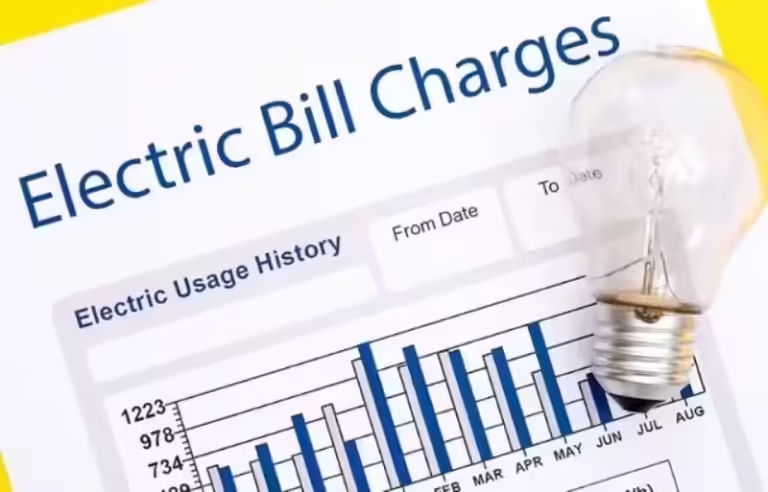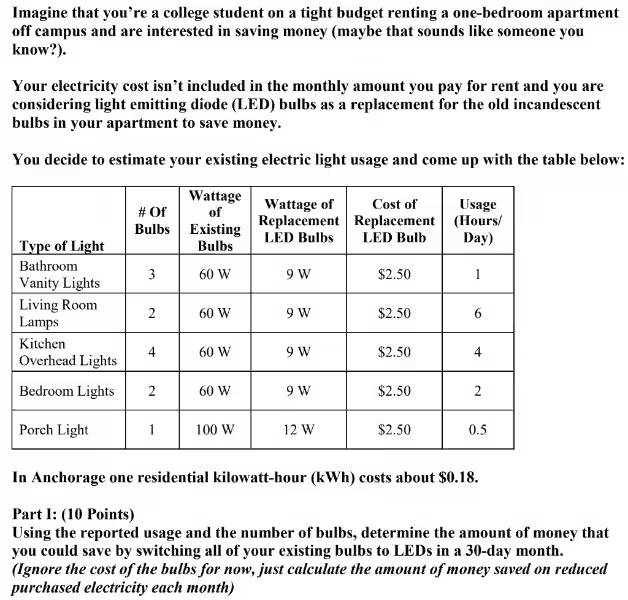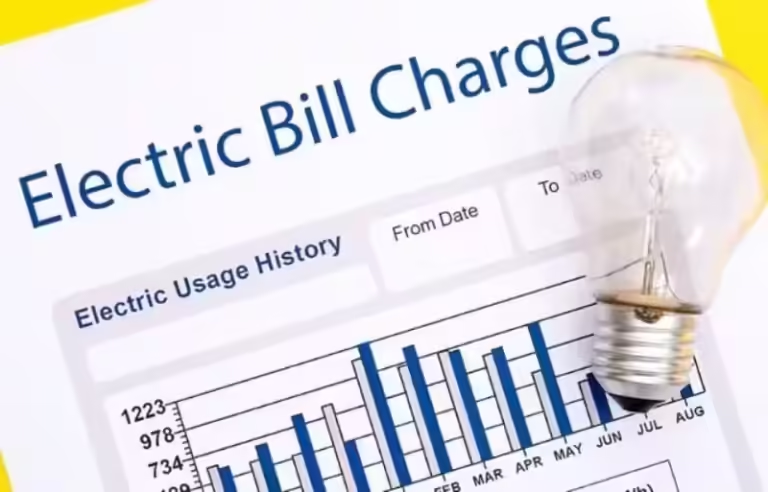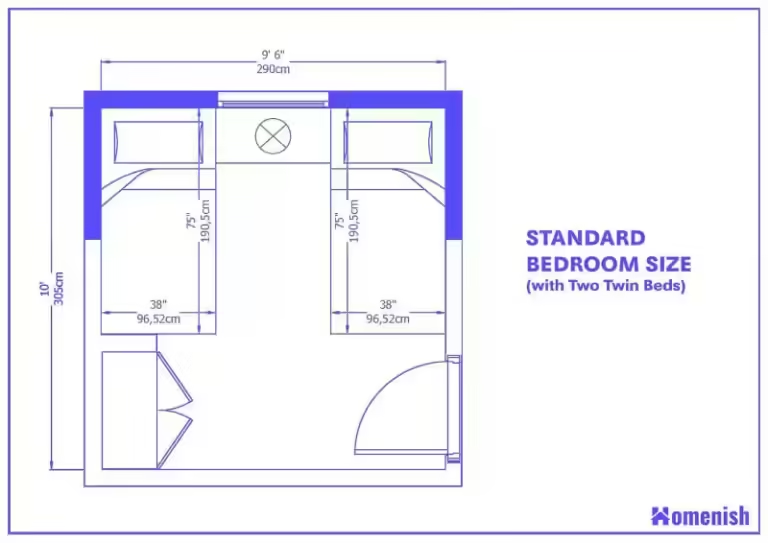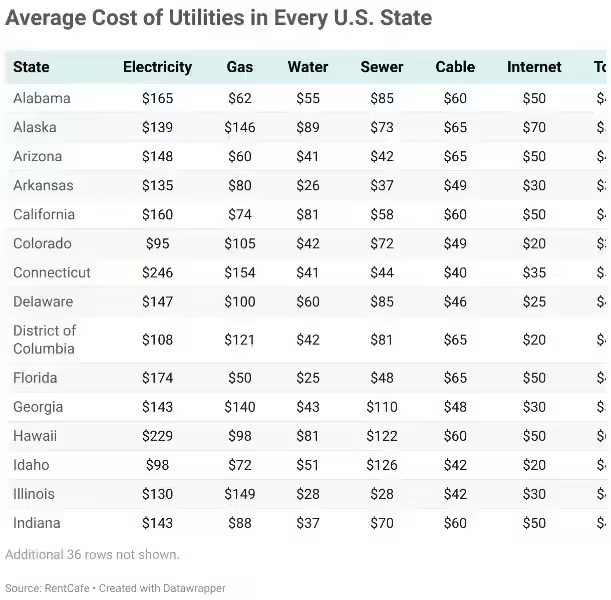How Much Does Electricity Cost for an Apartment?

Electricity costs for apartments can vary significantly depending on a multitude of factors. Understanding these factors can help you make informed decisions about your energy usage and potentially save money on your monthly bills. This article explores the average electricity costs for one- and two-bedroom apartments, key factors that influence those costs, and practical tips for reducing your energy consumption.
Average Electricity Costs for Apartments
The average monthly electricity cost for a one-bedroom apartment in the United States is around $60-$66, while a two-bedroom apartment typically sees an average of $76 per month. However, these figures only represent the electricity portion of your utility bill and do not take into account other costs like gas or water.
The total utility cost for a one-bedroom apartment can reach up to $125 per month, while a two-bedroom apartment may see a utility bill of around $194. It's important to remember that these are national averages and actual costs can vary depending on your location, specific apartment, and individual habits.
Key Factors Influencing Electricity Costs
Several factors contribute to your apartment's electricity consumption and ultimately determine your monthly bill. Understanding these factors can help you identify areas where you can potentially save energy and money.
Appliance Usage
Your appliance usage plays a significant role in your electricity consumption. Appliances like water heaters, refrigerators, washing machines, dryers, and even your lighting contribute to your electricity bill.
One of the biggest contributors to your electricity bill is heating and cooling, which can account for up to 50% of your total energy consumption. During the summer, your air conditioning system will be working overtime to maintain a comfortable temperature, while during the winter, your heating system will be running continuously to keep your apartment warm.
Number of Occupants
The number of people living in your apartment can also significantly influence your electricity bill. More people mean more showers, more laundry, and more overall energy usage, which leads to a higher electricity bill.
For example, a household with two people will likely use more hot water for showers and laundry compared to a single person living alone. This increased water heating usage will directly translate to higher electricity consumption and a higher bill.
Apartment Age
The age of your apartment also plays a role in your electricity costs. Older apartments tend to be less energy-efficient, with poor insulation and outdated appliances. Newer apartments, on the other hand, often feature better insulation, energy-efficient appliances, and advanced heating and cooling systems, resulting in lower electricity bills.
For instance, an older apartment with single-pane windows and a standard refrigerator might lose heat or cool air through the windows and require more energy to maintain a comfortable temperature. A newer apartment with double-pane windows and an energy-efficient refrigerator would likely consume less energy and result in lower electricity bills.
Electricity Rates
Electricity rates vary significantly depending on your location. State and city regulations, as well as the specific electricity provider in your area, can all affect your electricity costs.
For instance, some states have higher electricity rates than others due to factors like local energy sources and regulatory policies. Additionally, your electricity provider might offer different rate plans, including tiered pricing structures or time-of-day rates, which can impact your bill.
Tips for Saving on Electricity Costs
While you may not have complete control over factors like electricity rates or the age of your apartment, there are several practical tips you can implement to reduce your energy consumption and save money on your electricity bill.
Conserve Water
Water heating accounts for a significant portion of your electricity consumption. By taking shorter showers and using lower water temperatures, you can reduce the amount of energy needed to heat your water and save money on your electricity bill.
For example, switching from a 10-minute shower to a five-minute shower can save you a significant amount of water heating energy. Additionally, using cold water for laundry whenever possible can further reduce your water heating usage.
Wash Clothes on Cold
Using a washing machine's hot water cycle consumes a lot of energy. Washing your clothes on cold water whenever possible can significantly reduce your electricity consumption and save you money on your bill.
Most fabrics, especially those not visibly stained, can be washed effectively using cold water. Additionally, consider air drying your clothes whenever possible to avoid using the dryer, which is a major energy consumer.
Hang Dry Clothes
Dryers are notorious for being energy hogs. By air drying your clothes whenever possible, you can significantly reduce your electricity consumption and save money on your bill.
Dryers use a lot of energy to heat the air inside the drum, which can add up significantly over time. Utilizing a clothesline or drying rack outdoors can help you avoid using the dryer and reduce your energy consumption.
Unplug Electronics
Even when electronics are turned off, they often draw a small amount of energy, known as "vampire power." Unplugging unused electronics, especially those with a power adapter like chargers, can help reduce your overall energy consumption.
For example, unplugging your phone charger when it's not in use can save a small amount of energy, but this practice can add up over time if you apply it to all your electronics.
Install LED Lights
LED light bulbs are significantly more energy-efficient than traditional incandescent bulbs. Replacing your traditional bulbs with LED bulbs can save you money on your electricity bill and reduce your carbon footprint.
LED bulbs use less energy to produce the same amount of light, meaning you'll consume less electricity without sacrificing brightness. This energy-efficient option can contribute to significant savings over time.
Use Space Heaters Strategically
If you have a central heating system, consider using space heaters only in the areas you need to heat, rather than running the central heating for the entire apartment.
Space heaters are more energy-efficient than central heating systems, but it's important to use them safely and avoid overloading circuits. By strategically using space heaters, you can reduce your heating costs and save money on your electricity bill.
Beyond Individual Savings
While adopting energy-saving practices can help you reduce your electricity consumption, there are also larger initiatives you can explore to further reduce your energy footprint and support clean energy.
Community Solar
Community solar programs allow individuals to subscribe to a local solar farm, even if they cannot install solar panels on their own property. By subscribing to a community solar farm, you can support the production of clean energy and receive credits on your electricity bill.
This approach allows you to benefit from solar energy without the upfront costs and installation requirements of a private solar system. It's a great way to contribute to clean energy and reduce your reliance on traditional electricity sources.
Clean Energy Plans
Many electricity providers now offer clean energy plans that use 100% renewable energy sources, such as wind and solar. Switching to a clean energy plan can reduce your carbon footprint and support sustainable energy practices.
These plans often come with a slightly higher rate compared to traditional electricity plans, but the environmental benefits and support for clean energy can be a worthwhile investment. It's important to research and compare different clean energy plans from your local providers to find the best option for your needs.
Understanding Your Electricity Usage
The key to reducing your electricity costs is to understand your current energy consumption patterns. Analyze your electricity bills and identify areas where you can potentially save energy.
For example, you might notice that your bill is higher during certain months, suggesting a correlation with increased heating or cooling usage. By identifying these patterns, you can develop targeted strategies to reduce your energy consumption and save money on your electricity bill.
Understanding your apartment's electricity consumption, implementing energy-saving practices, and exploring alternative energy options can significantly reduce your monthly costs and contribute to a greener environment. By taking proactive steps to manage your energy usage, you can save money, reduce your carbon footprint, and create a more sustainable lifestyle.
Frequently Asked Questions about Apartment Electricity Costs
What is the average electricity cost for a 1-bedroom apartment in the US?
$60-$66 per month
What is the average electricity cost for a 2-bedroom apartment in the US?
$76 per month
What factors influence electricity costs in an apartment?
Appliance usage, number of occupants, apartment age, and electricity rates.
How can I reduce my apartment's electricity costs?
Conserve water, wash clothes on cold, hang dry clothes, unplug electronics, install LED lights, use space heaters strategically.
What are some alternative energy options to reduce electricity costs?
Community solar and clean energy plans.


